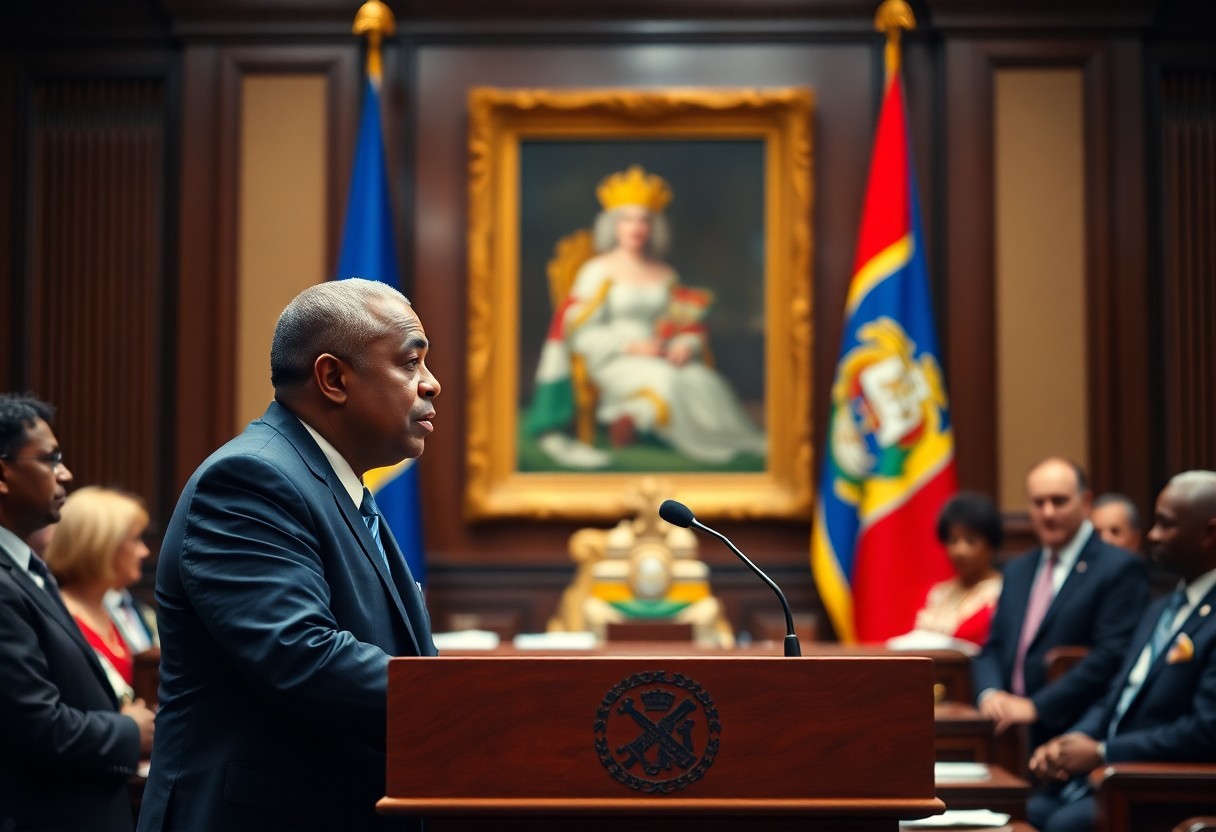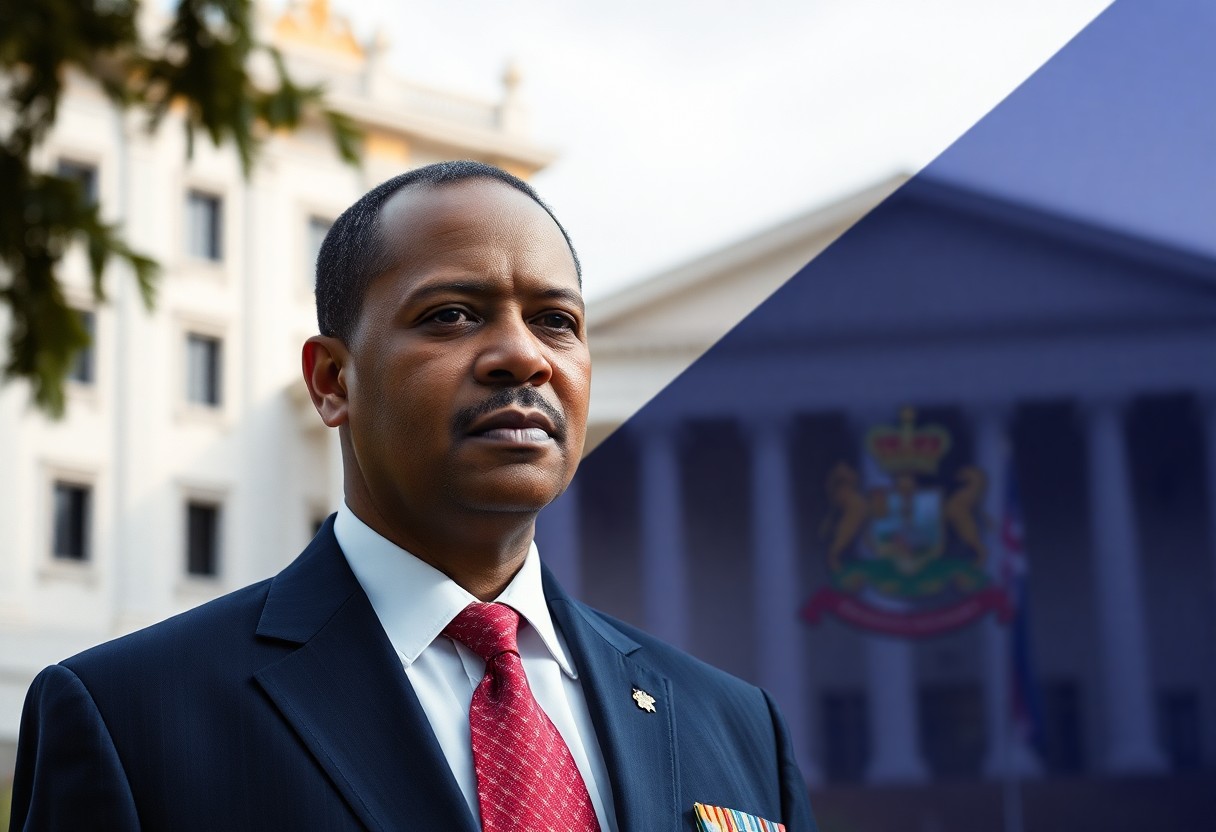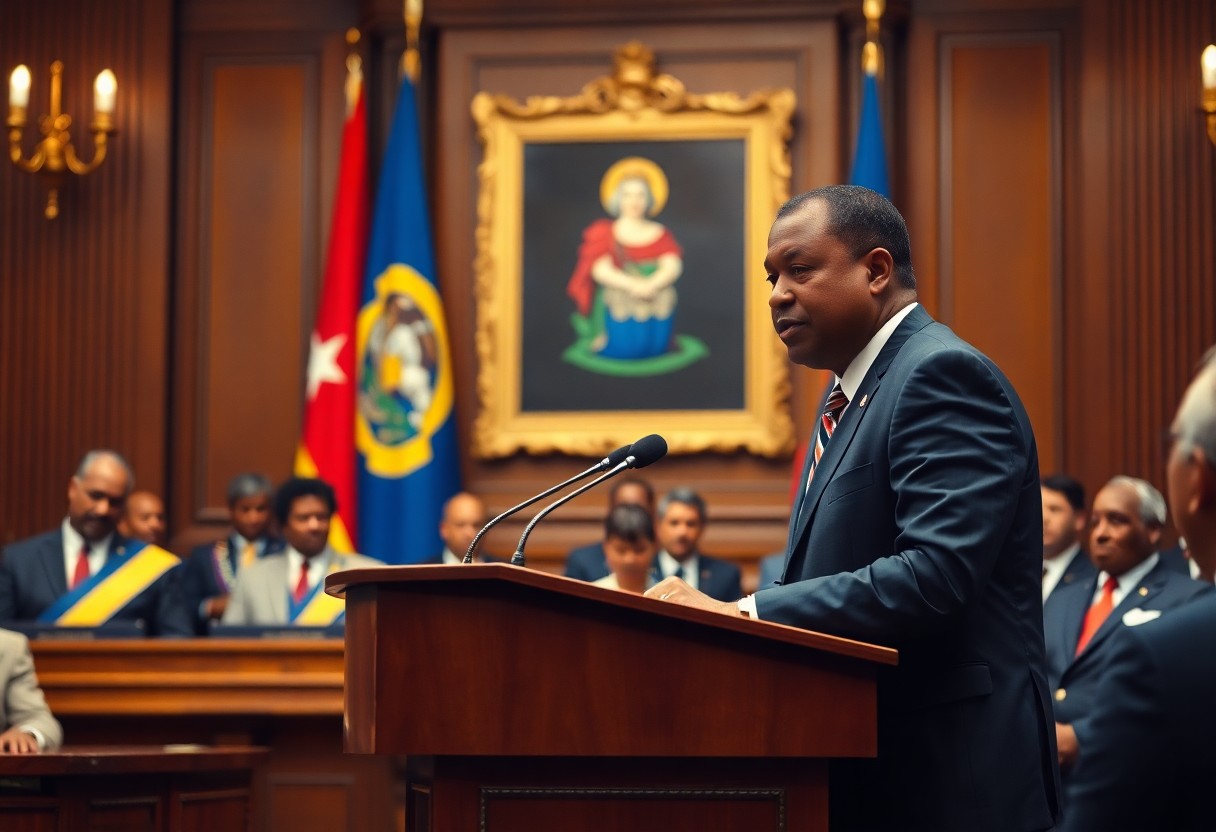Belize offers a captivating political landscape that reflects a blend of history and complexity. Operating as a parliamentary democracy, Belize adheres to a constitutional framework where the authority of elected representatives is paramount. While the nation retains its status as a Commonwealth realm with King Charles III serving as the symbolic head of state, the real political power resides with the Prime Minister and the National Assembly. This distinctive governmental structure merges traditional British parliamentary practices with modern democratic ideals, resulting in a vibrant political environment that mirrors Belize’s rich cultural and historical influences.
Explore the Comprehensive Constitutional Framework of Belize’s Governance
In Belize, the constitutional framework establishes the foundation for a robust parliamentary democracy within the Commonwealth. This system is meticulously crafted to balance democratic ideals with the historical institutional legacies of British colonial governance. The constitution, enacted in 1981 after Belize’s independence, outlines the core political structure of the nation, detailing the roles and interactions among the various branches of government. This framework guarantees that Belize’s governance remains both representative and accountable to its diverse citizenry, fostering an inclusive political atmosphere.
The Monarch’s Ceremonial Role in Belize’s Governance
Under the constitutional design, the British monarch acts as Belize’s ceremonial head of state. Although King Charles III holds this nominal position, he is represented locally by a Governor-General appointed on ministerial recommendation. This representative’s duties are largely symbolic, encompassing formal governmental ceremonies and a variety of constitutional responsibilities that are integral to the governance of the nation. This arrangement highlights the historical connections between Belize and the British monarchy while simultaneously allowing local governance to flourish.
The Prime Minister: Central Figure in Belize’s Political Leadership
Within the political framework of Belize, the Prime Minister holds a pivotal role as the primary source of executive authority and political leadership. Typically, this position is assumed by the leader of the party that secures the majority in the House of Representatives. The Prime Minister is tasked with shaping national policy, overseeing governmental operations, and representing Belize in international arenas. Their influence is essential in guiding the nation’s trajectory and political landscape.
The constitution delineates the extensive responsibilities that the Prime Minister carries in the governance of Belize. This role involves critical decision-making across numerous governmental sectors, underscoring the necessity for effective leadership. The Prime Minister leads the Cabinet, proposes legislative measures, manages national economic policies, and serves as the primary political spokesperson for the country. Their authority is significant yet balanced by parliamentary scrutiny and constitutional restrictions.

Assessing the Prime Minister’s Influence on Belize’s Governance
The Prime Minister of Belize is not only the government’s head but also commands substantial political authority and influence. As the leader of the majority party in the parliament, they are instrumental in directing national policies, representing Belize on the global stage, and managing the executive branch of government. Their role is crucial for ensuring effective governance and promoting national decision-making processes.
Understanding the Vast Powers of the Prime Minister
To fully appreciate the political structure of Belize, it is vital to recognize that the Prime Minister wields extensive constitutional powers that significantly shape the political landscape. This includes the authority to appoint cabinet ministers, advocate for new legislation, direct governmental policies, and represent Belize in various international discussions. Such broad influence positions the Prime Minister as a central figure in Belize’s governance, capable of molding the nation’s future direction.
The Electoral Process for Appointing the Prime Minister
Typically, candidates for ministerial positions emerge through party-focused electoral processes. Frequently, prospective Prime Ministers are leaders of their political parties who successfully win parliamentary seats. Their selection hinges on the electoral success of their party during national elections, reflecting the essential democratic principles that form the backbone of Belize’s governmental system.
The electoral process in Belize encapsulates complicated political dynamics essential for grasping its governance model. Candidates must navigate a series of challenges, including local constituency elections, party nominations, and national voting trends. Generally, the leader of the party that secures the most parliamentary seats ascends to the Prime Ministership, illustrating the direct link between electoral success and governmental authority.

Diving into Belize’s Bicameral Parliamentary Structure
Belize functions within a parliamentary democratic context, adopting a Westminster-style governance model rooted in British colonial traditions. The bicameral legislature consists of two chambers: the House of Representatives and the Senate, which collectively form the core legislative body responsible for drafting and enacting national laws.
The Critical Role of the House of Representatives
The House of Representatives serves a vital function in democratic representation, comprising 31 elected members chosen through constituency-based elections. These representatives are directly elected by the populace, acting as the principal democratic voice within Belize’s political architecture. Each member advocates for the interests of a specific geographic region, ensuring that the diverse needs of the citizens are effectively represented and addressed.
Examining the Senate’s Role and Structure
In contrast to the House of Representatives, the Senate operates as an appointed upper chamber consisting of 12 nominated members. These senators are not elected directly; rather, they are appointed by the Governor-General based on recommendations from various political and societal sectors. This system allows for a balanced perspective on national legislation, enriching the legislative process with diverse insights and expertise.
This legislative body plays a crucial advisory role in Belize’s governance. Senators are typically selected to represent a wide array of interests, including business, labor, religious organizations, and civil society. Their primary duty involves reviewing and potentially amending legislation passed by the House of Representatives, thereby ensuring a comprehensive and balanced lawmaking process that considers various societal viewpoints.

Dispelling Common Misconceptions About Belize’s Political System
Despite popular beliefs, Belize’s governmental structure is far more intricate than many might presume. Common misunderstandings about political leadership contribute to confusion regarding the true nature of governance in the country. You might discover that the reality of Belize’s political system diverges significantly from surface-level perceptions, revealing nuanced layers of authority and governance that warrant deeper investigation.
Clarifying the Differences Between “President” and “Prime Minister”
Given that many nations operate under presidential systems, there is a tendency to mistakenly believe that Belize follows a similar model. However, it is crucial to recognize that Belize functions under a parliamentary system, where the Prime Minister serves as the head of government, rather than a president. This distinction is essential for understanding the structure of political leadership, as the Prime Minister is elected from the majority party in parliament, contrasting with a directly elected presidential figure.
Unraveling the Complex Political System of Belize
A deeper exploration into Belize’s political framework reveals intricate interactions among constitutional monarchy, parliamentary democracy, and local governance. It may be surprising to learn that while the British monarch remains the official head of state, daily governance is managed by elected officials through a representative democratic system that emphasizes local accountability.
Common misconceptions surrounding Belize’s political structure often overlook the intricate balance of power between local institutions. You might be astonished to find that the system comprises multiple levels of governance, including a national parliament, local councils, and the influence of the British monarchy through a Governor-General. Understanding this nuanced political landscape requires a comprehensive perspective that goes beyond simplistic categorizations of governmental styles.
Understanding the Dynamics of Governance and Political Relationships in Belize
It is essential to recognize that Belize operates as a parliamentary democracy within a constitutional monarchy, where the British monarch serves as the ceremonial head of state. Your comprehension of the political landscape is profoundly shaped by the Prime Minister’s considerable power, who leads the government and represents the majority party in the National Assembly. Although the political system appears stable, potential tensions between political parties can create complex governance challenges that impact national decision-making processes. Gaining awareness of these dynamics will enhance your appreciation for the delicate power balance in this Central American nation, where historical influences and democratic processes continue to shape the political trajectory.
Investigating the Historical Development of Belize’s Political Landscape
The political landscape of Belize has evolved from a rich and intricate colonial history, where British colonial rule profoundly impacted its governance structure. You can explore the nation’s political transformation, which transitioned from being a British Honduras colony to an independent nation in 1981. This significant period marks a critical turning point for understanding Belize’s governmental framework. Your exploration will reveal how British parliamentary traditions have fundamentally shaped Belize’s current political system, resulting in a unique amalgamation of Westminster-style democracy and local governance that continues to define the country’s political identity today.
Essential Insights into Belize’s Political Structure and Governance
In summary, Belize functions as a parliamentary democracy within the Commonwealth realm, where the Prime Minister exercises primary executive authority. While Queen Elizabeth II historically served as the head of state, the current monarch, King Charles III, maintains a largely symbolic presence. Understanding Belize’s governance involves recognizing the National Assembly, which comprises elected representatives responsible for drafting and enacting legislation. The Prime Minister, typically the leader of the majority party, effectively governs the country, making pivotal decisions that shape Belize’s political landscape. This system adeptly balances democratic representation with the tenets of constitutional monarchy.
Common Questions About Belize’s Political System Answered
What are the Fundamental Functions of Belize’s Political System?
Belize operates as a parliamentary democracy within the Commonwealth realm. The Prime Minister acts as the head of government, leading the executive branch. The Parliament consists of two chambers: the House of Representatives (which comprises elected members) and the Senate (which consists of appointed members). While Queen Elizabeth II historically served as the head of state, King Charles III currently fulfills this ceremonial role, represented locally by a Governor-General.
Who Currently Leads Belize, and How are National Leaders Selected?
Prime Minister Johnny Briceño is at the helm of Belize, leading the People’s United Party (PUP). National leaders are selected through democratic elections, where citizens cast their votes for representatives in the House of Representatives. The political party that secures the majority of seats typically forms the government, and its leader becomes the Prime Minister. Elections occur every five years, ensuring ongoing democratic engagement.
What Legislative Powers Does the Belizean Parliament Exercise?
The Belizean Parliament wields significant legislative authority. The House of Representatives is tasked with drafting, debating, and passing laws that influence national policy. Members propose legislation, approve national budgets, and oversee government operations. The Senate reviews proposed laws and can recommend modifications. Both chambers are essential in upholding democratic processes and representing the interests of Belizean citizens.
The Article Who Really Runs Belize? The Prime Minister, Parliament, and Monarchy Explained appeared first on Belize Travel Guide
The Article Who Runs Belize? Insights on the Prime Minister and Government Was Found On https://limitsofstrategy.com




Comments are closed